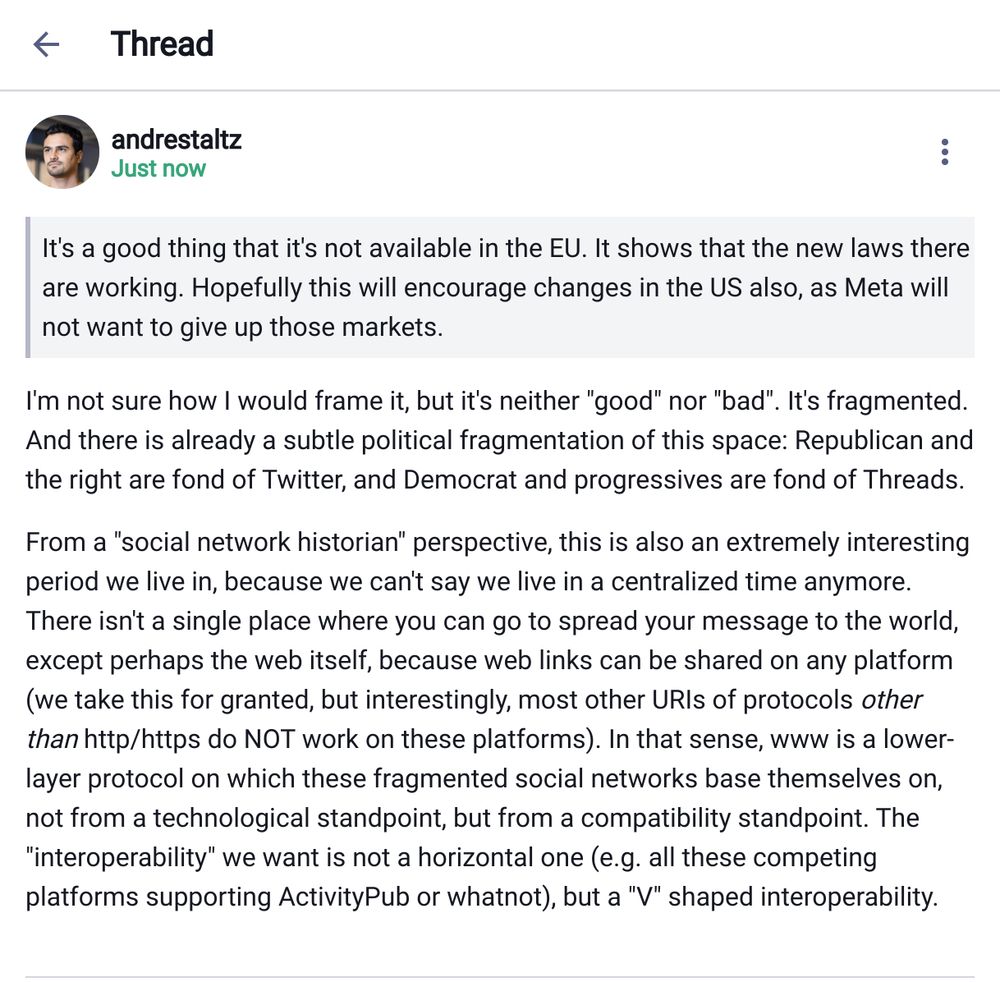"I'm not sure how I would frame it, but Threads not in EU is neither "good" nor "bad". It's fragmented. And there is already a subtle political fragmentation of this space: Republican and the right are fond of Twitter, and Democrat and progressives are fond of Threads.
From a "social network historian" perspective, this is also an extremely interesting period we live in, because we can't say we live in a centralized time anymore. There isn't a single place where you can go to spread your message to the world, except perhaps the web itself, because web links can be shared on any platform (we take this for granted, but interestingly, most other URIs of protocols other than http/https do NOT work on these platforms). In that sense, www is a lower-layer protocol on which these fragmented social networks base themselves on, not from a technological standpoint, but from a compatibility standpoint. The "interoperability" we want is not a horizontal one (e.g. ActivityPub), but a "V" shaped one."
